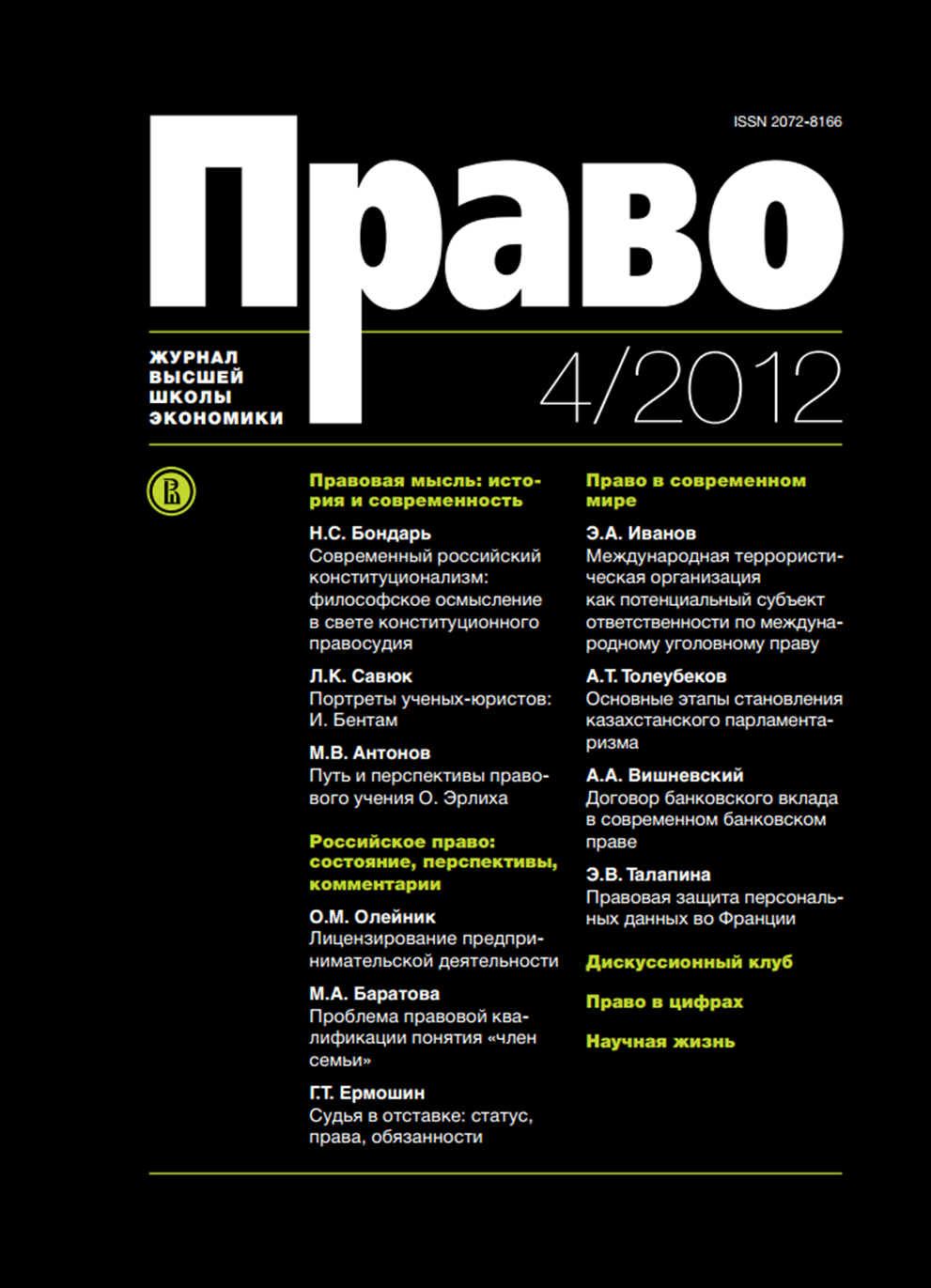Concept of State in Works of Eurasianism Ideology Leaders
Abstract
The author considers the definitions of state in the works of Eurasianism ideology leaders of the 1920s – 1930s, i.e. N. Trubetzkoy, N. Alexeyev and L. Karsavin and compares their views with the conceptions of foreign and Russian scholars including H. Kelsen, R. Kjellen, N. Ustryalov, N. Berdyaev. The article stresses that the representatives of Eurasianism developed the so-called arithmetical approach to state reality which differentiated three aspects of state – territory, population and state. Studying this approach geopolitically, Eurasionists considered state as an economy based on the environment – the territory as a substantial origin; state as a moral phenomenon; state as law. However, having revealed the features of state specified by the Eurasianism ideologists, the author makes a conclusion on the inner controversy of state and law views expressed by the representatives of pure Eurasionism. L. Karsavin assumed that a people and a state are individuals, i.e. the whole. N. Trubetzkoy considered the development of a state as a derivative from the life of its people as only the people may be a personality but not the state. N. Alexeyev used the term succession of relations for any collective entity. The inner controversies in the views of the representatives of Eurasionism caused challenges in shaping up a single political and law program and thus lack of its vitality in the modern legal context.














